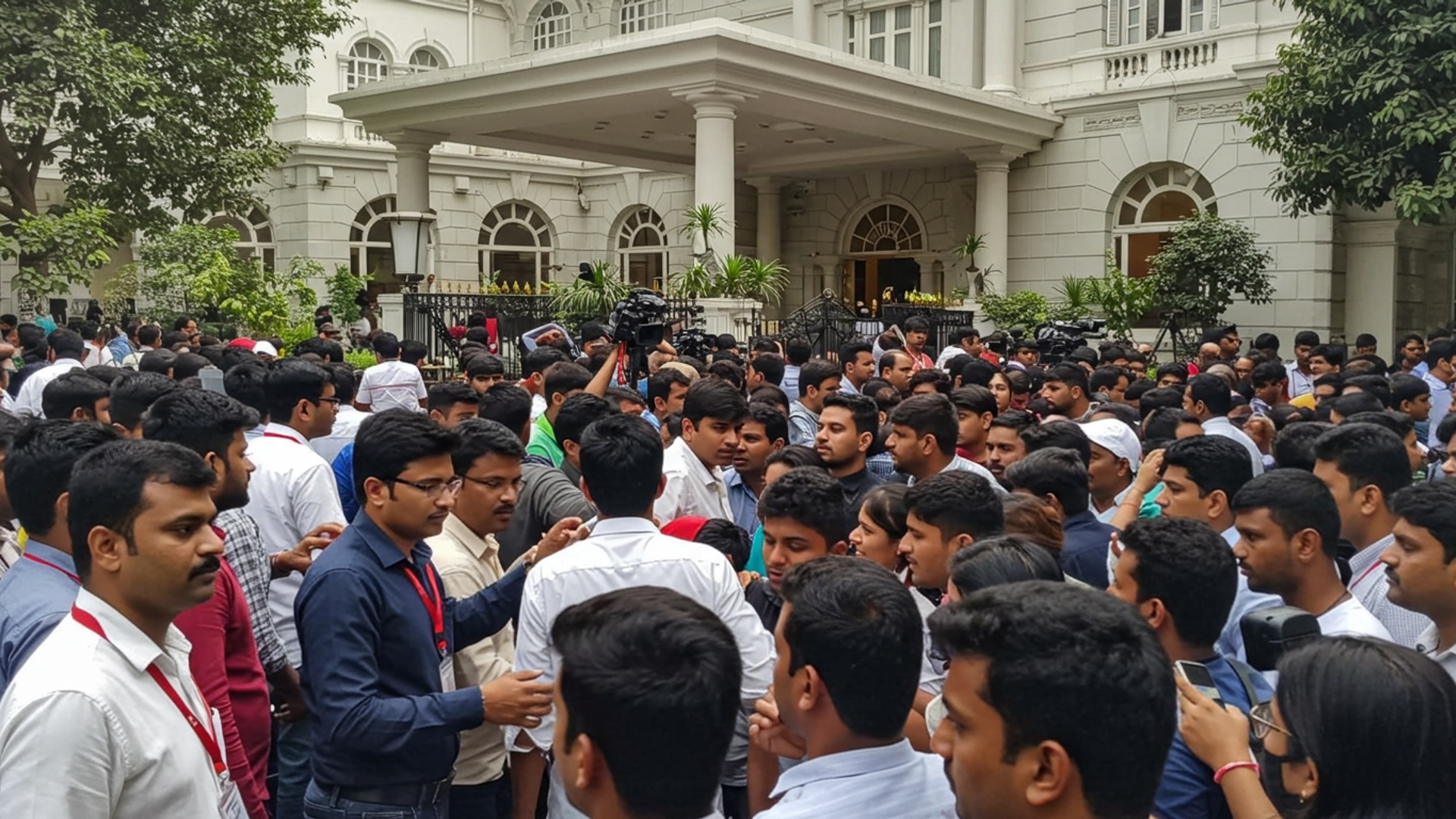In a landmark decision, women in Jharkhand can now legally work night shifts, a historic move that breaks decades-old restrictions and opens new job chances across many businesses. This immediate change, effective now, overturns previous laws that stopped women from working between 7 PM and 6 AM, marking a big step forward for fairness in the state and potentially changing how the workforce operates.
Change in Work Rules
In a significant decision for working women, President Droupadi Murmu has approved a new law that allows women in Jharkhand to work night shifts in factories. This change is part of the Factories (Jharkhand Amendment) Bill, 2023. The new rules mean that women can now take up duties between 7:00 PM and 6:00 AM, a time frame previously restricted for them. This approval paves the way for more job opportunities and greater participation of women in the state’s industrial sector.
Old Rules and Why They Changed
Before this amendment, the Factories Act of 1948 generally stopped women from working between 7:00 PM and 6:00 AM. While state governments had some power to change these hours, they could not allow women to work between 10:00 PM and 5:00 AM. This older rule aimed to protect women but also limited their job choices, especially in industries that run all day and night. Many industries, including large ones like Tata Motors and Tata Steel, expressed interest in hiring women for all shifts but could not do so under the old rules.
The Jharkhand government proposed this change to remove these barriers. The Factories (Jharkhand Amendment) Bill, 2023, was first brought to the Jharkhand Assembly on August 2, 2023. The aim was to boost employment for women and to support industrial growth in the state.
crucial Safety Measures
The new law comes with strict rules to make sure women working night shifts are safe. Employers must get clear permission from women before giving them night duty. A key part of the new rule is that the full responsibility for the safety and security of female employees lies with the company and its management.
Companies must also provide safe transport, including pick-up and drop-off services, for women working late hours. These measures are put in place to create a secure work environment, ensuring that while women gain more opportunities, their well-being is not put at risk.
A Jharkhand chief factories inspector, Manish Kumar Sinha, confirmed that the government will soon make this change official by publishing it in the state gazette. He said the new rule would start within a week or ten days after this official notice.
Views from Different Groups
The decision to allow women to work night shifts has received different reactions from various groups. Government officials see it as a positive step for the state’s economy and for women’s roles in the workforce.
Jitendra Kumar, Secretary, Department of Labour, Employment, Training & Skill Development, said the bill aims to “enhance employment opportunities while ensuring a secure work environment.”
Manish Kumar Sinha, Jharkhand chief factories inspector, noted that the change would “ensure participation of the women workforce in industries” and called the new rules “industry-friendly.” He also added that it would “increase women’s participation in the workplace, which is very meagre at present.”
Labor union leaders have largely welcomed the move, seeing it as a step towards equal opportunities for women. But, they strongly emphasize the need for companies to follow safety rules very strictly.
Sanjay Singh, Vice President of Tata Workers’ Union, welcomed the decision, stating it “will be given equal opportunities like men.” He also added, “It would be the responsibility of the company to provide them with a pick and drop facility and their security would also be concerned. The overall decision is very good but several steps should be taken for the safety of the women during night shift.”
Rakeshwar Pandey, President of Tata Steel Group Workers Union, called it “a very good decision that will give women equal opportunities like men.” He added, “But both the state government and company management must ensure complete safety during commuting.”
Sanjeev Kumar Choudhary, President of Tata Workers Union, stated that while it is a “welcome step,” “ensuring women’s safety and basic facilities. monitoring them, will be the shared responsibility of management and unions.”
Shashibhushan Prasad, President of Tata Motors Workers Union, recognized it as a “good policy initiative,” but noted that “many measures must be taken before implementation to safeguard women’s interests.”
Not all groups are fully on board. Some have raised concerns, especially about women’s safety in the state.
Kunal Sharangi, a spokesperson for the BJP in Jharkhand, questioned the timing of the amendment. He stated, “Passing any law without considering ground realities and making amendments under the guise of ‘right to equality,’ is inappropriate and inconsiderate.” He also asked, “How do you plan to control the inhuman incidences of crime against women? Is the amendment to the Factory Law wherein a provision has been made for night shift duties for women logical and considerate, especially at a point when the rate of crime against women in Jharkhand is the highest in India? Is it appropriate to make this amendment without improving the law and order situation?”
Expected Effects on Work and Jobs
This change is expected to open up many more jobs for women, especially in factories that need workers around the clock. Companies like Tata Motors and Tata Steel, which run 24 hours a day, will now be able to hire more women for all shifts. This will help them meet their staffing needs and increase the overall number of women in their workforce.
Historically, restrictions on women working at night have limited their chances for better-paying jobs and career growth, as night shifts often offer higher wages. By allowing women to work these shifts, the state aims to give them more financial independence and career choices. This move aligns with similar changes happening in other parts of India, where states are slowly removing such old restrictions to boost women’s participation in the formal economy.
The change also simplifies rules for businesses, as part of a larger effort to make it easier to operate in Jharkhand. For example, the new law introduces flexibility in how long a business license is valid, allowing companies to choose a period from one to fifteen years instead of a fixed ten-year period.
![]()















